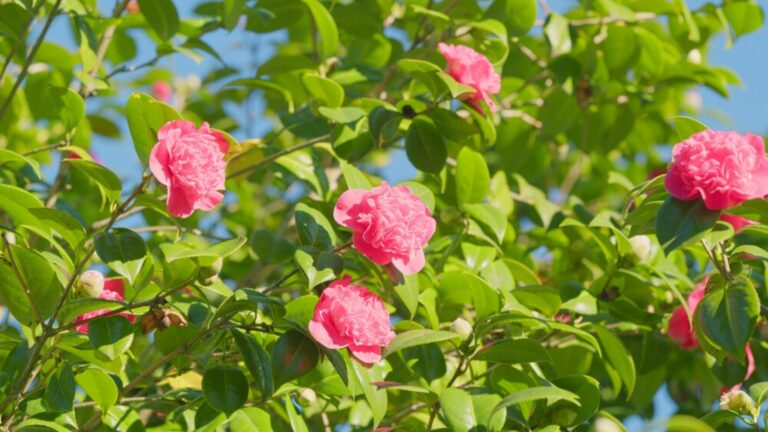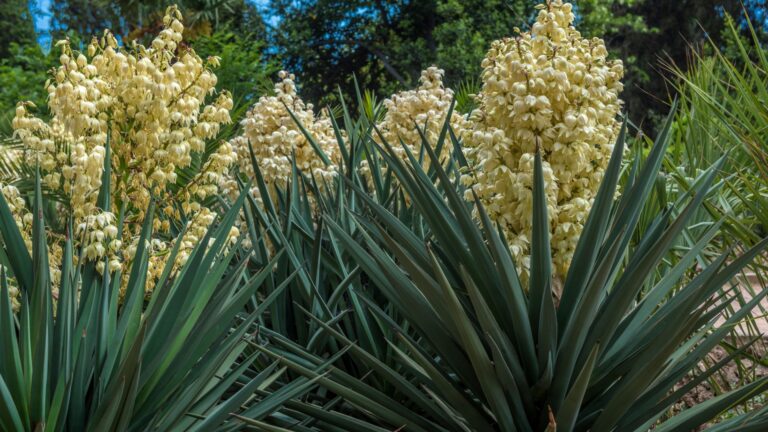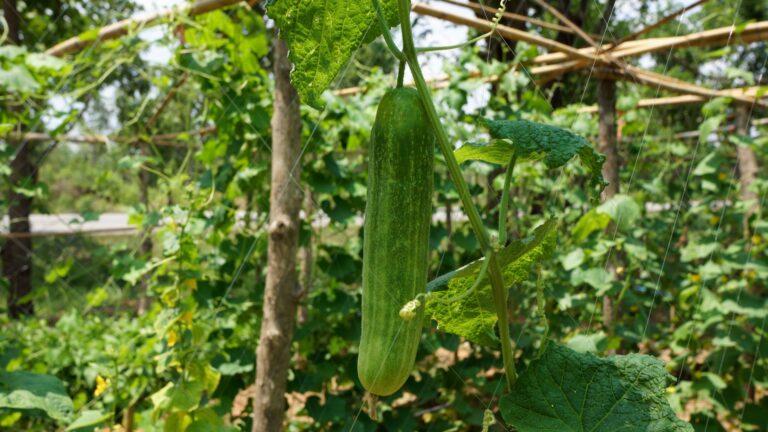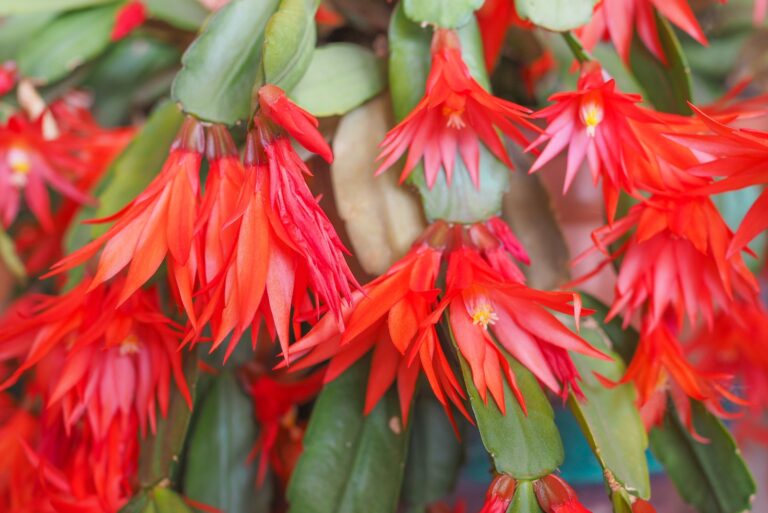9 Biggest Birdbath Mistakes Georgia Homeowners Make And How To Correct Them
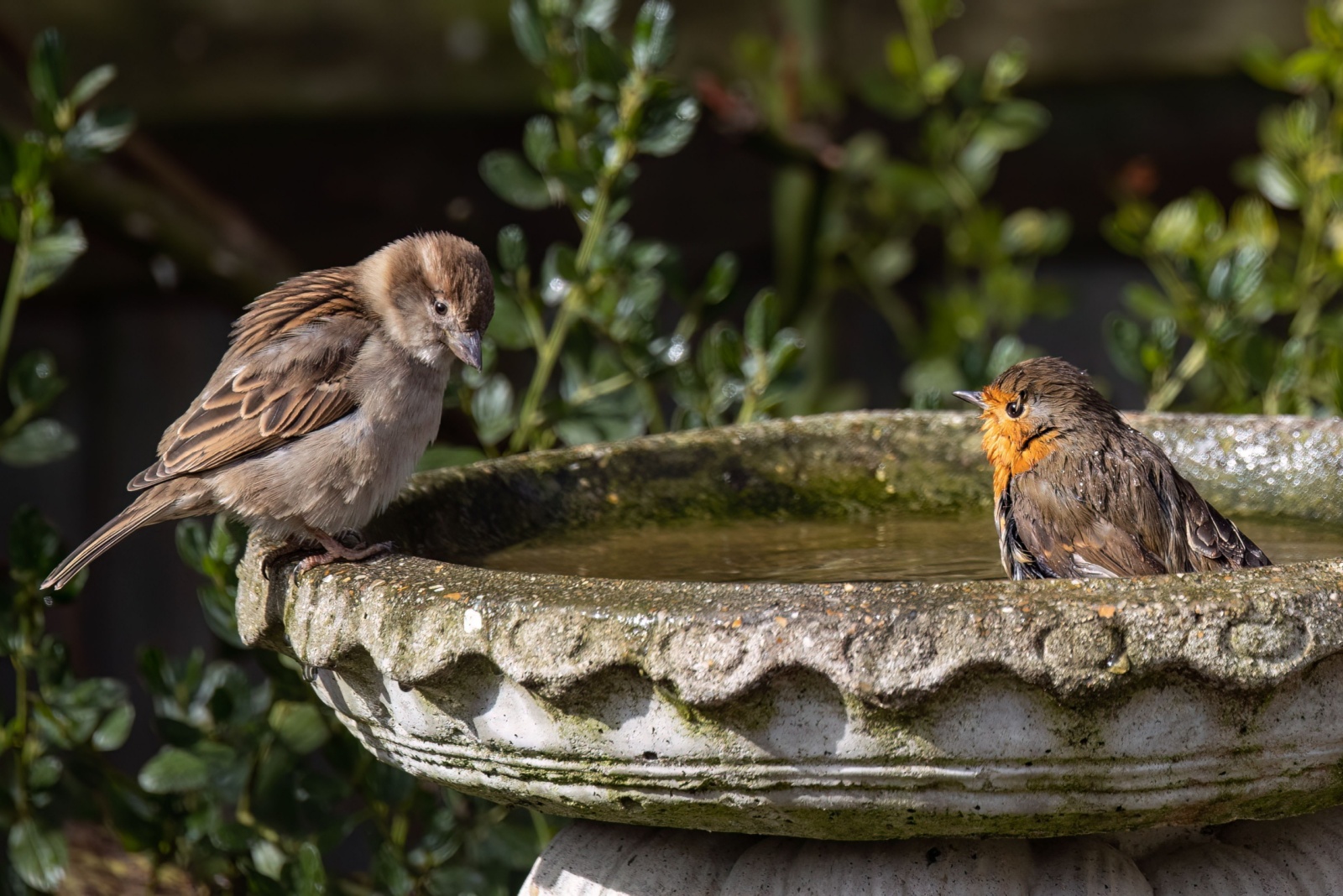
Birdbaths can transform your Georgia garden into a bustling wildlife haven, but many homeowners unintentionally make mistakes that drive birds away.
Birds need clean, safe water sources, especially during Georgia’s hot summers when natural water can be scarce. Fixing these common birdbath blunders will help attract more feathered visitors to your yard.
1. Letting Water Get Too Deep
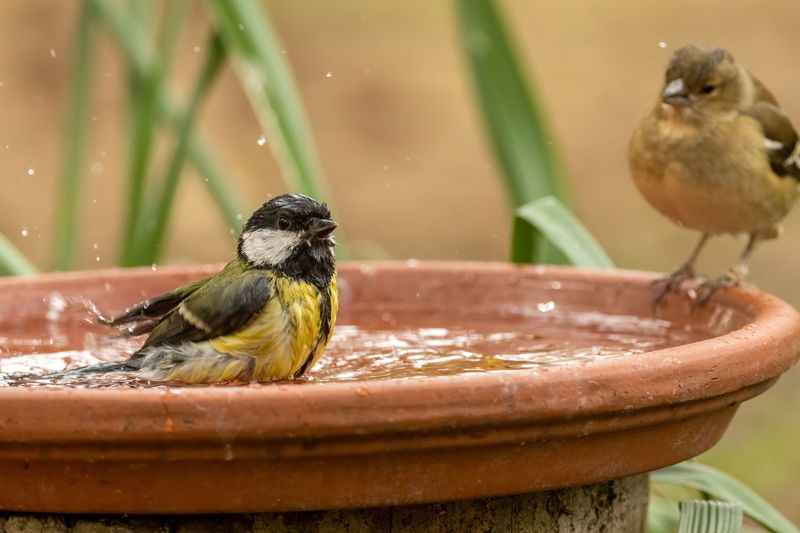
Most birds prefer shallow water for bathing and drinking. When your birdbath is filled to the brim, smaller birds can’t safely use it.
Add some decorative stones or pebbles to create varying depths. This creates shallow areas where chickadees, finches, and warblers can comfortably splash around without risk of drowning.
The ideal depth is about 1-2 inches at the edges, gradually deepening to no more than 3 inches in the center.
2. Forgetting To Clean Regularly
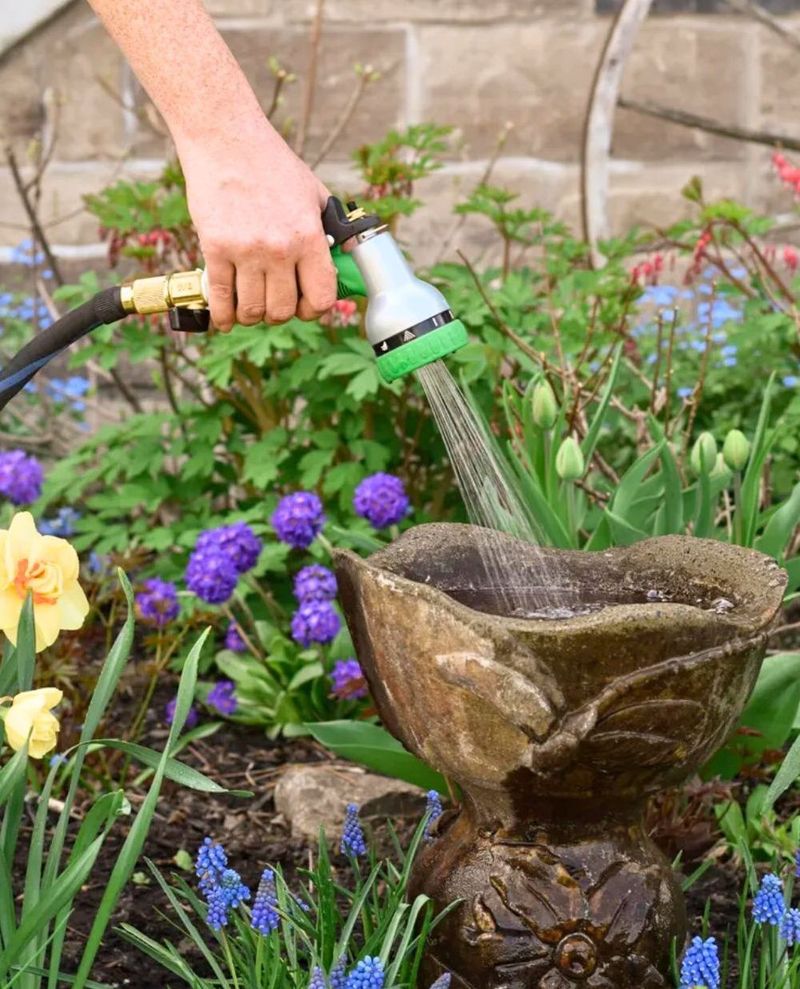
Dirty birdbaths quickly become breeding grounds for mosquitoes and harmful bacteria. Birds can sense when water isn’t fresh and will avoid contaminated sources.
Empty and scrub your birdbath at least twice a week during Georgia’s hot months. Use a stiff brush with a mixture of nine parts water to one part vinegar to remove algae and grime.
Rinse thoroughly before refilling with fresh water to keep your feathered friends healthy and coming back.
3. Placing In Full Sun
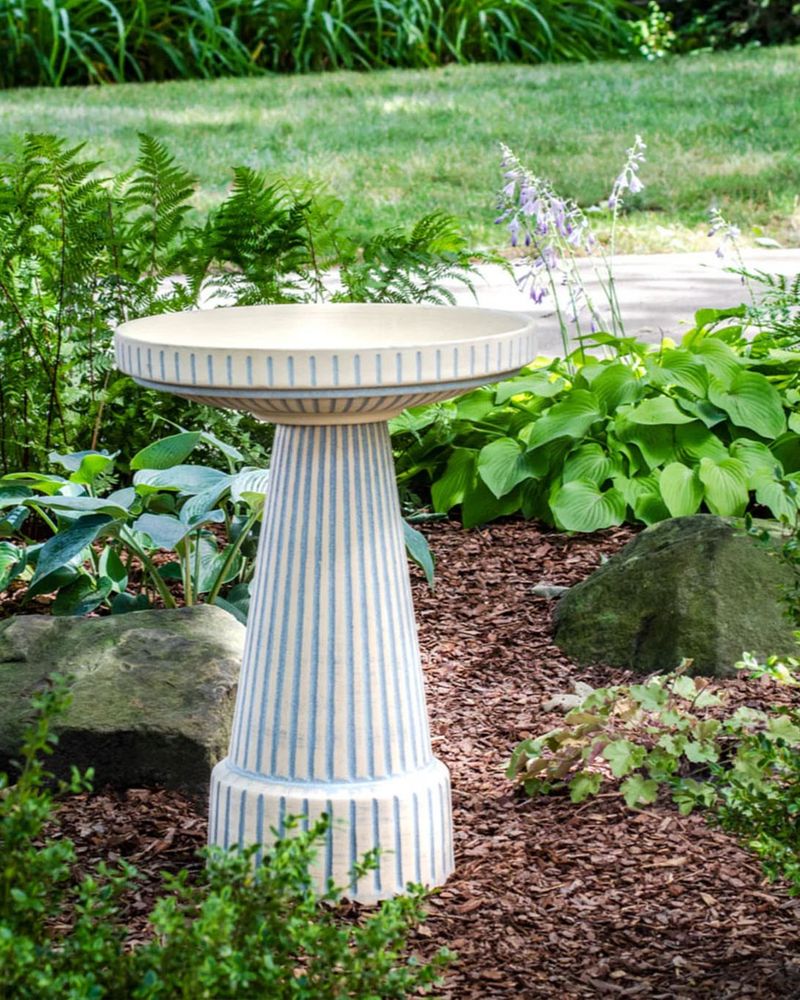
Georgia summers are brutally hot! Birdbaths sitting in direct sunlight quickly evaporate and heat up to uncomfortable temperatures that birds avoid.
Relocate your birdbath to a partially shaded spot under a tree or near shrubs. Morning sun with afternoon shade creates the perfect balance, keeping water cooler and reducing evaporation.
The nearby vegetation also provides quick escape routes for birds if predators approach while they’re bathing.
4. No Movement In The Water
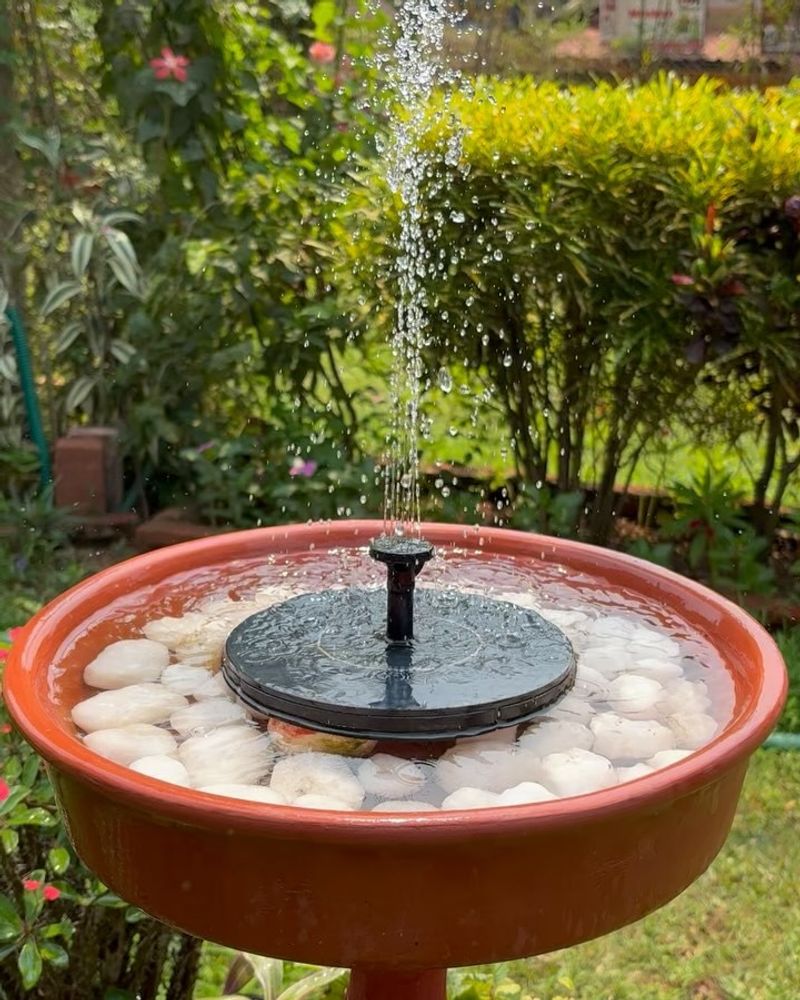
Still water doesn’t catch birds’ attention like moving water does. The gentle sound and sparkle of rippling water acts as a natural bird magnet.
Install a small solar fountain or water wiggler. These affordable additions create movement that birds can hear and see from a distance, dramatically increasing your visitor count.
As a bonus, moving water discourages mosquitoes from laying eggs, solving two problems at once in your Georgia garden!
5. Poor Location Choice
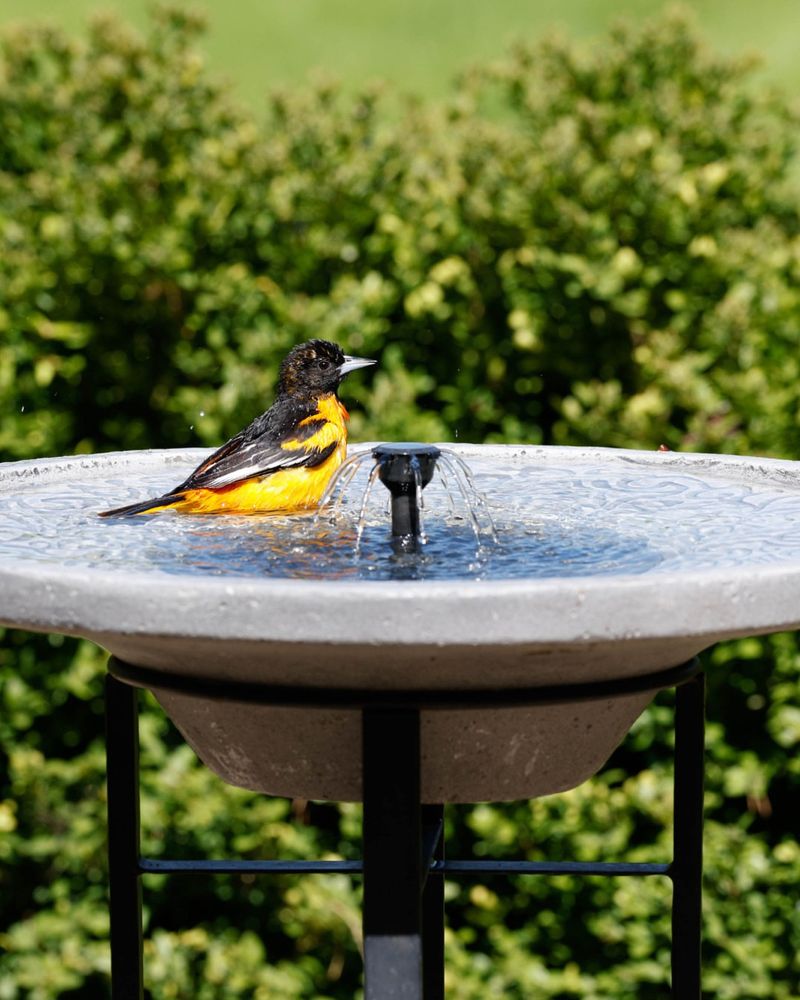
Many Georgia homeowners place birdbaths in the wrong spots – either too exposed or too hidden. Birds need to feel safe when they’re vulnerable and wet.
Position your birdbath about 10-15 feet from shrubs or trees. This distance gives birds a quick escape route while preventing cats from using dense cover as an ambush point.
Avoid placing near bird feeders where seed hulls might contaminate the water, but close enough that birds can easily hop between both resources.
6. Using Slippery Materials
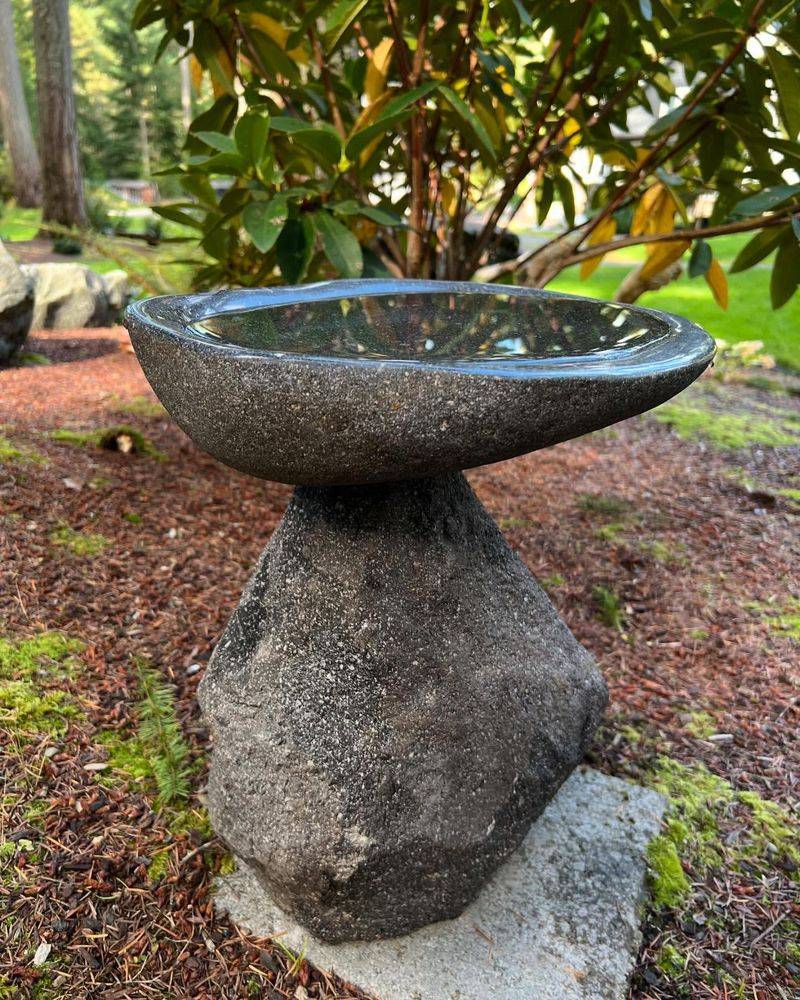
Glossy ceramic or metal birdbaths look beautiful but create dangerous slip hazards for birds. Wet feathers and smooth surfaces are a recipe for injury!
Choose birdbaths with textured surfaces or add grip tape strips along the rim and base. Natural stone birdbaths with rough textures are excellent choices that blend beautifully with Georgia’s landscape.
If you already have a slick birdbath, line the basin with small pebbles or a thin layer of sand for better footing.
7. Ignoring Winter Water Needs
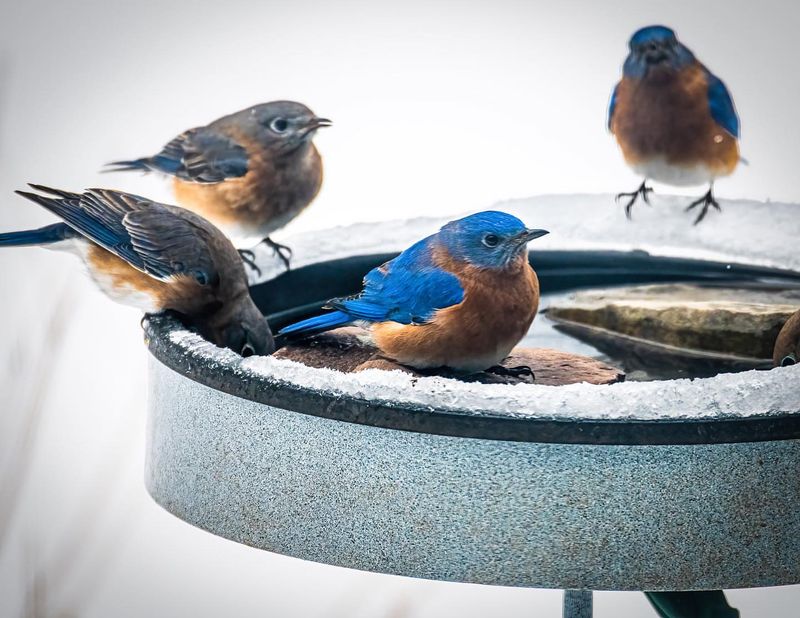
Georgia winters may be milder than northern states, but occasional freezes still happen. Many homeowners mistakenly pack away birdbaths when temperatures drop.
Overwintering birds desperately need water sources when natural options freeze. Install a small, inexpensive heater designed for birdbaths during cold snaps to prevent ice formation.
The birds that stay through winter will reward you with activity in your garden when most other wildlife has disappeared.
8. Missing Perching Areas
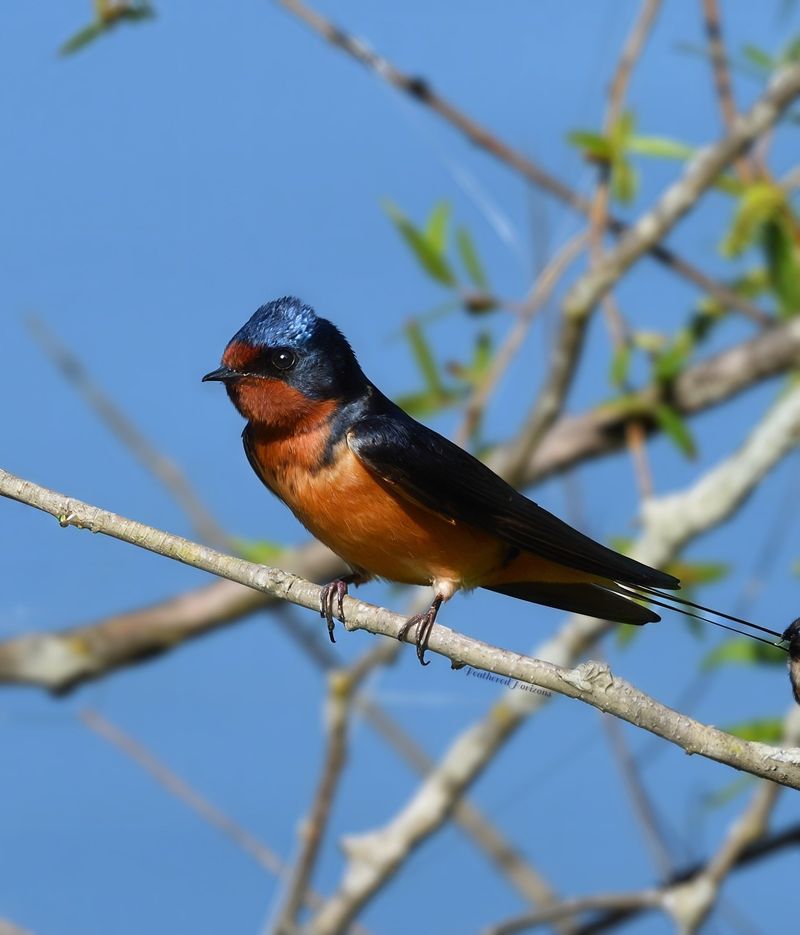
Birds like to land, check for danger, and then approach water gradually. Without perching spots, they might avoid your bath entirely.
Add branches or driftwood near the edge of your birdbath. These natural perches give birds comfortable places to land before entering the water.
For Georgia’s larger birds like jays and thrashers, include a few sturdier perching options that won’t tip when heavier birds land on them.
9. Forgetting Seasonal Cleaning
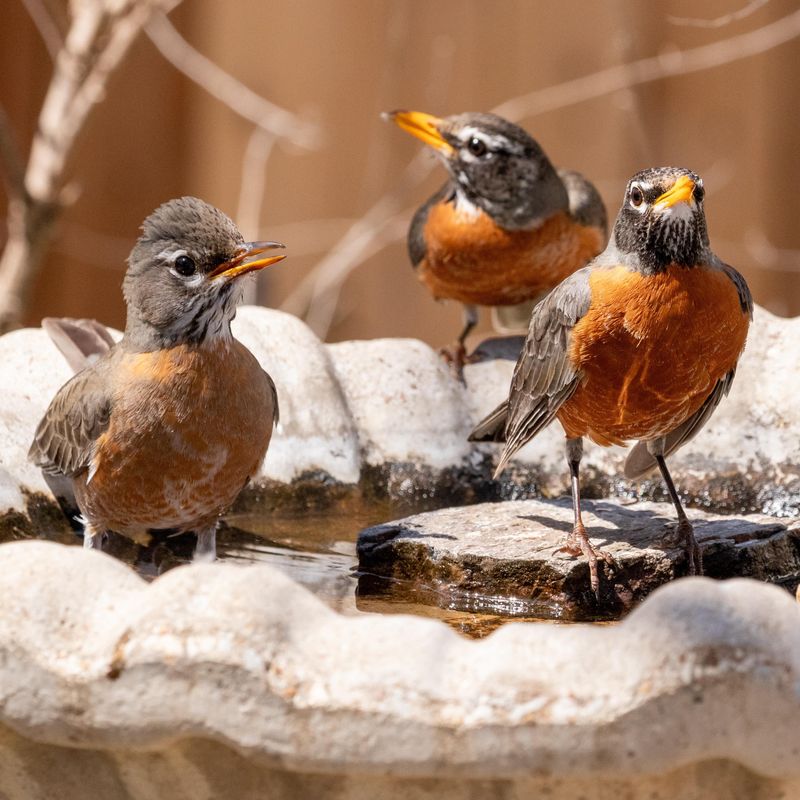
Beyond regular maintenance, many Georgia homeowners skip the crucial seasonal deep cleaning. Mineral deposits from hard water build up over time, creating unhealthy conditions.
Every season, thoroughly scrub your birdbath with a mixture of hydrogen peroxide and water (1:10 ratio). This removes stubborn stains and kills harmful pathogens that regular cleaning might miss.
Pay special attention after pollen season when Georgia’s famous yellow dust coats everything outdoors!

